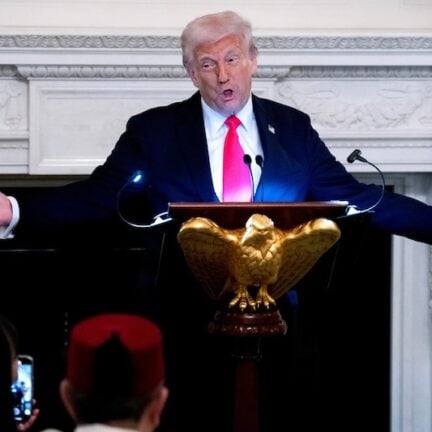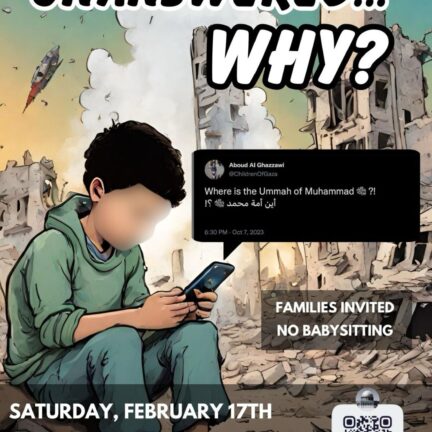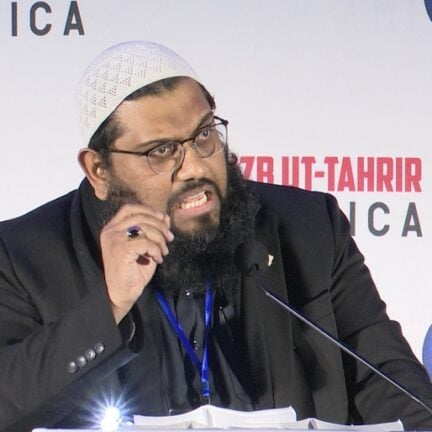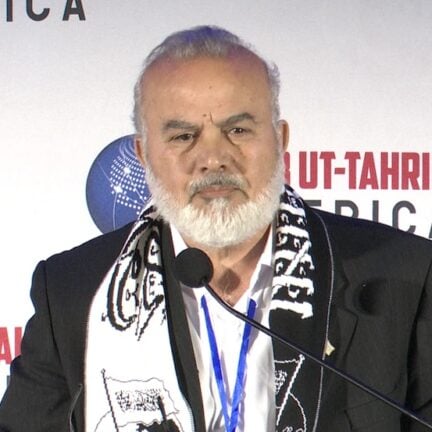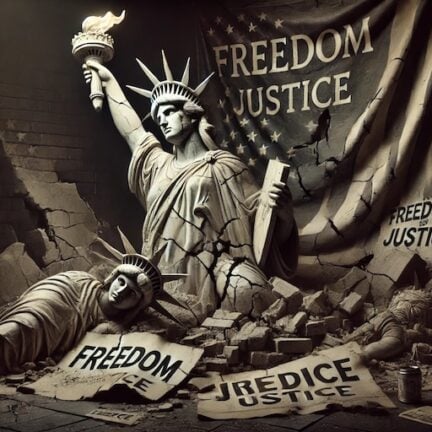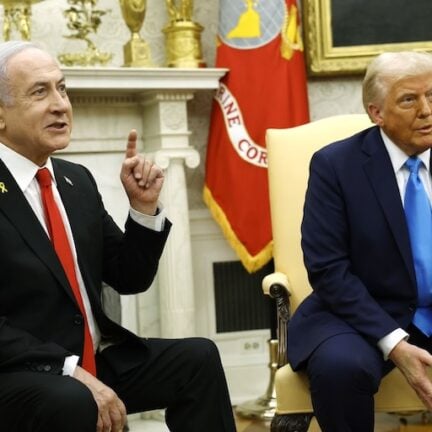Question:
Dar Al Hilal published on 14/9/2024: (Pakistani police announced today, Saturday, the killing of at least two of its members in an explosion that occurred near a police bus in the city of Quetta, the capital of Balochistan province in the southwest of the country…) Pakistan had previously witnessed the largest-scale attacks in years as part of an ethnic rebellion waged by militants for decades, (where more than 73 people were killed in several attacks… In a statement sent via email to journalists, the Balochistan Liberation Army claimed responsibility for the attacks. (Al-Hurra, 27/8/2024)). Thus why are these attacks escalating in Balochistan? Is Britain involved in creating problems for the army? Is America itself causing problems to distract the army away from occupied Kashmir and India? Is India also involved? And does China have a role in this?
Answer:
In order to clarify the answer to the above questions, we will review the following matters:
First: The Balochistan region extends between Pakistan, Afghanistan and Iran. It is in southwestern Pakistan, known as the Pakistani Balochistan province, with the city of Quetta as its capital, and in southeastern Iran, known as the Sistan-Baluchistan province, with the city of Zahedan as its capital. It also extends more than 100 kilometers into southern Afghanistan and includes parts of the southern provinces of Nimroz, Helmand and Kandahar. In terms of population, the Pakistani part of Balochistan is considered the most important part of all, as it is inhabited by about 20 million Baloch and Pashtuns, and its area constitutes about 44% of Pakistan, and about 6% of Pakistan’s population of about 240 million lives in it. It is one of the richest regions in Pakistan in terms of natural resources, especially gas and minerals. It is considered one of the largest sites in the world for copper and gold.
For example, the Canadian mining company Barrick Gold owns about 50% of the Reko Diq mine located in Balochistan. Balochistan has become an important part of the China-Pakistan Economic Corridor project, within the Chinese Belt and Road Initiative, which is financed by China to reach the Arabian Sea where the port of Gwadar is located near the Gulf of Oman. In addition, China is building an international airport in Gwadar. Therefore, the Balochistan region is gaining great importance in Pakistan. As for the Iranian part, it is inhabited by about 3 million people, while the number of Baloch in the Afghan part is estimated at less than a million people.
The people of Balochistan in these three countries are almost all Sunni Muslims. Islam entered these regions early in the year 23 AH during the reign of the Rightly-Guided Caliph Omar, may Allah be pleased with him. After unrest in it caused by the Hindu Kingdom of Sindh, the Khilafah (Caliphate) regained control over it during the reign of Caliph Muawiyah, who conquered it again. The Umayyad Caliph Abdul Malik bin Marwan made it a starting point for the conquest of Sindh.
Second: There are many separatist groups in the Balochistan region of Pakistan with nationalist orientations, waging a guerrilla war against the Pakistani army since the late 1960s. The most famous and largest of these groups is the Balochistan Liberation Army, which was founded in 2000. This group is locally allied with another major group, the oldest of these groups, the Baloch Liberation Front, which was founded in 1964 and waged a guerrilla war against the Pakistani army. It also participated in operations against the Iranian army inside Iran. There are other groups of lesser weight. As is usual for armed organizations that find themselves in dire need of money and weapons, the separatist groups in Balochistan quickly found themselves a target for various intelligence agencies. With the Soviet occupation of Afghanistan in 1979 and the transformation of Pakistan into a base for the Mujahideen against the Soviets, Moscow began to support the separatist groups in Balochistan to spite Pakistan. With the success of the Khomeini revolution in Iran in 1979 and the outbreak of the Iran-Iraq war after that, the Iraqi regime began to support these groups (the Balochistan Liberation Army) for military action in Iran, as did India, which supported these groups in Balochistan against the backdrop of its wars with Pakistan in Kashmir. When America wanted India to be one of the pillars of its axis against China, both parties (India and America) began supporting those groups in Balochistan with the aim of occupying the Pakistani army with internal battles and distancing it from India’s borders and its control in Jammu and Kashmir.
Third: These are the political facts necessary to understand the reality of the attacks and guerrilla warfare waged by armed groups or factions in Balochistan against the Pakistani army. By following these attacks and their development over the decades, we find the following:
1- The Pakistani governments, before the American occupation of Afghanistan, were in contact with these groups and concluded peace agreements with them. The nineties were a period of relatively great calm, but the attacks of these groups, especially the Balochistan Liberation Army, have greatly escalated and their large size has appeared since 2003. Pakistan responded and killed the separatist leader in Balochistan, Nawab Akbar Bugti, in 2006, and the situation was ignited.
2- On 25 and 26/8/2024, Pakistan witnessed the largest attacks by the Balochistan Liberation Army in years, killing about 73 people, targeting police stations, railway lines and vehicles on a highway in Balochistan. (The most violent attacks took place on Monday, 26/8/2024, on a highway linking the Balochistan and Punjab provinces in Musa district, where gunmen intercepted buses and trucks and shot dead 23 Punjabi workers after verifying their identities, according to local sources. The Pakistani army also announced that it had killed 21 separatist militants in Balochistan. In 2023, it carried out about 110 attacks, and in the first months of 2024, it carried out about 62 attacks – according to statistics from the Pakistan Institute for Peace Studies – based in Islamabad. (Al Jazeera, 26/8/2024) 3- (The Pakistani police announced today, Saturday, the killing of at least two of its members in an explosion that occurred near a police bus in the city of Quetta, the capital of Balochistan province in the southwest of the country… while initial reports indicate that it was caused by the explosion of an explosive device planted on the side of the road. (Dar Al Hilal, 14/9/2024)).
Fourth: In addition to targeting the Pakistani army and police, these groups have begun to specifically target the Chinese and Chinese projects within the China Economic Corridor project in Pakistan. These attacks can be reviewed as follows:
1- There are a number of major projects in Balochistan run by China (five Chinese workers working at the construction site of the Dasu Hydroelectric Dam in Khyber Pakhtunkhwa province and their Pakistani driver were killed in a suicide bombing that targeted their vehicle. (Alhurra, 27/8/2024).
2- Six people were killed in an explosion when their convoy was attacked by a suicide bomber (this is the third major attack targeting Chinese interests in Pakistan within a week. The previous two explosions targeted an air base and a strategic port in Balochistan province in the southwest of the country, where China is investing billions in infrastructure projects. (Asharq Al-Awsat, 26/3/2024).
3- The Balochistan Liberation Army includes the Majeed Brigade, which carries out “suicide” operations. One of its most prominent attacks was the “suicide” bombing that targeted a Chinese institute at the University of Karachi in Sindh province in April 2022. (Al Jazeera Net, 1/2/2024).
4- These attacks are repeated: from the killing of Chinese engineers in August 2018 (Reuters, 11/8/2018) to the attack on the Chinese consulate in Karachi in November 2018 (Sky News Arabia, 23/11/2018), and the attack on a luxury hotel where Chinese people usually stay in the city of Gwadar in Balochistan in May 2019 (Alhurra, 12/5/2019) where the famous port built by China is located.
5- The separatists also target Chinese interests and Chinese workers in Balochistan. Recently, on 13/8/2024, they attacked a convoy carrying Chinese engineers to Gwadar Port, as happened previously in separate incidents in which Chinese academics working on the China-Pakistan Economic Corridor project, which is considered one of the pillars of the Chinese Belt and Road Initiative, were killed. Pakistani Prime Minister Shehbaz Sharif said “the militants also wanted to drive a wedge between Islamabad and Beijing.” (Reuters) (The attacks aim to harm the China-Pakistan Economic Corridor.” (Al-Arabi, 30/8/2024)).
Fifth: As for the parties that direct these attacks against China’s interests and against the Pakistani army, they are India, and behind India is America:
1- As for India’s interest in these attacks on the Pakistani army, it can be noted in the following matters:
a- In 2018, The News International newspaper referred to security reports about India allocating more than 50 billion rupees ($261 million) to target the economic corridor by creating unrest in Balochistan. (Al Jazeera Net, 15/5/2022).
b- The Chief of Staff of the Pakistani Army, General Raheel Sharif, and the local Chief Minister of Balochistan, in addition to the Chairman of the Senate, Reza Rabbani, (accused Indian intelligence of being involved in the matter. Sharif indicated that India wants to sabotage huge economic projects worth $46 billion that China has started in Balochistan, and New Delhi fears that this will negatively affect its economy, he said: “It attempts to destabilize the region and target the economic corridor project between Pakistan and China.” (Noon Post, 18/8/2016).
c- This group is back in the spotlight today (after claiming responsibility for a suicide attack targeting the Pakistan Stock Exchange in Karachi, the country’s economic capital, on June 29, which killed seven people. Immediately following the attack, Pakistan accused India of planning it and supporting the Balochistan Liberation Army and all other Baloch separatist movements. (Al-Araby Al-Jadeed, 12/7/2020)
d- (“Last year, on 9/4/2023, Pakistan arrested the leader and founder of the so-called Balochistan National Army, which was founded in January 2022, Gulzar Imam, who is responsible for dozens of attacks in Balochistan and Punjab.” The Pakistani military’s media outlet announced that the army’s main intelligence agency said “Gulzar Imam visited India and Afghanistan, and that hostile intelligence agencies tried to exploit him to work against Pakistan and its national interests.” (Al-Jazeera, 12/9/2023).
2- As for America’s interest in the Balochistan Army’s attacks, it is evident in the following matters:
a- Since 2014 until today, India has been ruled by America’s agents in the Bharatiya Janata Party led by Modi, who implements American policy towards China. Therefore, everything India has done and is doing towards China falls within the scope of serving America’s interests with Indian tools.
b- (Pakistani Foreign Minister Hina Rabbani Khar warned the United States of America against interfering in her country’s internal affairs. The minister was speaking after the US Congress approved a resolution calling for Balochistan to have the right to self-determination. However, the Pakistani minister said that she realizes that this resolution does not reflect the official US government policy. (BBC, 20/2/2012)
c- In 2022, the United States signed an agreement with the Balochistan government to build the first police investigation school in Balochistan, which gave the United States a major role in developing legal investigations, police investigations, and law and order in the region. This was an introduction to American interference in Balochistan’s affairs!
Sixth: Thus, we see that America has an interest in exploiting these separatist nationalist movements in Balochistan to threaten Chinese interests as part of its policy towards China, it appears that it is exploiting it, and its follower India, which is working to strike Chinese interests while waging a conflict against China due to its border disputes and serving American interests. All of these American goals are being achieved on the ground today, as the Pakistani army has been occupied in its internal regions away from India, especially Kashmir. It has been occupied in Balochistan to combat the insurgency and pursue separatist groups (and as a result of the escalation of the conflict in the region, the Pakistani government deployed 80,000 soldiers to fight Baloch organizations… Al
Jazeera Net, 1/2/2024), and the usual Pakistani statements and threats against India have disappeared and have been replaced by threats against terrorism and rebels… Thus, India’s front has been secured from Pakistan, and its army has deployed along its border with China and clashes started there, which is what America wants, to occupy China with the confrontation with India.
Seventh: As for Britain, despite the lack of evidence of its activities or the activities of its agents in the Gulf inside Balochistan, Pakistan (except that a split within the Balochistan Liberation Army in 2010 was led by Mehran Marri, who holds British citizenship and founded the United Baloch Army) (Al Jazeera Net, 1/2/2024), this may suggest its efforts to create influence within the separatist groups in Balochistan, but its influence remains small compared to America and India… Its influence has weakened greatly in India and Pakistan, where American agents rule.
Eighth: The conclusion from the above:
1- The ruling system in Pakistan should have dealt with the issue of Balochistan, which is part of its territory, by treating it with the care, justice and kindness according to Shariah, and by making use of the public property in the lands of Balochistan for all the subjects of the state, including the Baloch. But instead, it treated the problem as a security issue, by killing and arresting, not with good care as in Islam:
«الْإِمَامُ رَاعٍ وَمَسْئُولٌ عَنْ رَعِيَّتِهِ» “The Imam is a guardian and is responsible for his subjects.” (Narrated by Al-Bukhari).
2- Likewise, the armed organizations in Balochistan should not have allowed the enemies of Islam (America and India) to exploit them against their country, nor should they have worked for the separation and division of the state, as this is a major matter in Islam, its perpetrator will be held to a great sin, as Muslims are one Ummah that cannot be divided.
[إِنَّ هَذِهِ أُمَّتُكُمْ أُمَّةً وَاحِدَةً وَأَنَا رَبُّكُمْ فَاعْبُدُون]“O prophets! Indeed, this religion of yours is ˹only˺ one, and I am your Lord, so worship Me ˹alone˺” [Al-Anbya: 92]
3- The third, which is the most serious and bitter, is on the one hand: the loyalty of the ruling regime in Pakistan to America and the implementation of its orders to be preoccupied with its internal affairs instead of directing its forces to liberate Kashmir… and on the other hand, the separatist organizations in Balochistan seeking of help from kuffar and polytheists… and all of that is forbidden in Islam.
[وَلَنْ يَجْعَلَ اللهُ لِلْكَافِرِينَ عَلَى الْمُؤْمِنِينَ سَبِيلا]“And Allah will never grant the disbelievers a way over the believers” [An-Nisa: 141]
4- The true unity of the people of Pakistan will not be restored except by implementing the rules of Islam, spreading the idea of true Islamic brotherhood, and applying the idea of equality among all Muslims in benefiting from the returns of public property such as gas, minerals, etc., until injustice, poverty, and marginalization are lifted from the Muslim people of Balochistan and other Islamic people. Islam has rejected and absolutely prohibited nationalistic sentiments, and has established brotherhood among Muslims.
[إِنَّمَا الْمُؤْمِنُونَ إِخْوَةٌ فَأَصْلِحُوا بَيْنَ أَخَوَيْكُمْ وَاتَّقُوا اللهَ لَعَلَّكُمْ تُرْحَمُونَ]“The believers are but one brotherhood, so make peace between your brothers. And be mindful of Allah so you may be shown mercy” [Al-Hujurat: 10].
At the same time, this brotherhood of Islam must push them to work with the workers to establish their one state, the Khilafah Rashidah (Rightly-Guided Caliphate), the source of their unity, the source of their pride, and the truth of their brotherhood…and that is the great victory.
[وَيَوْمَئِذٍ يَفْرَحُ الْمُؤْمِنُونَ* بِنَصْرِ اللهِ يَنْصُرُ مَنْ يَشَاءُ وَهُوَ الْعَزِيزُ الرَّحِيمُ]“And on that day the believers will rejoice * at the victory willed by Allah. He gives victory to whoever He wills. For He is the Almighty, Most Merciful” [Ar-Rum: 4-5]
14 Rabi ul Awwal 1446 AH
17/9/2024 CE


